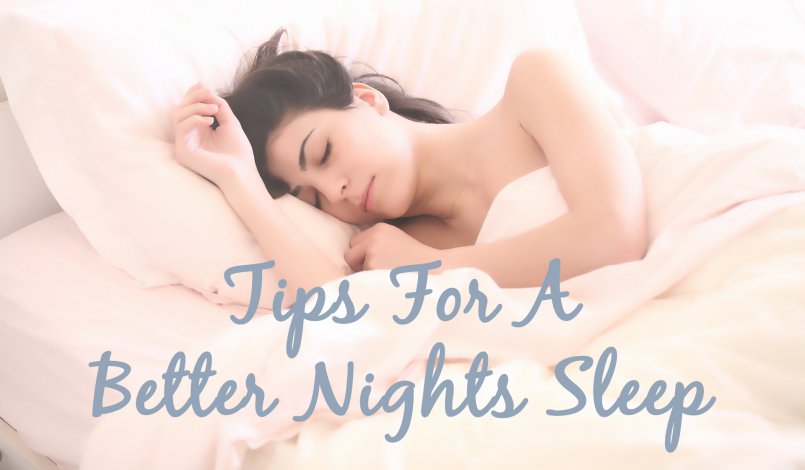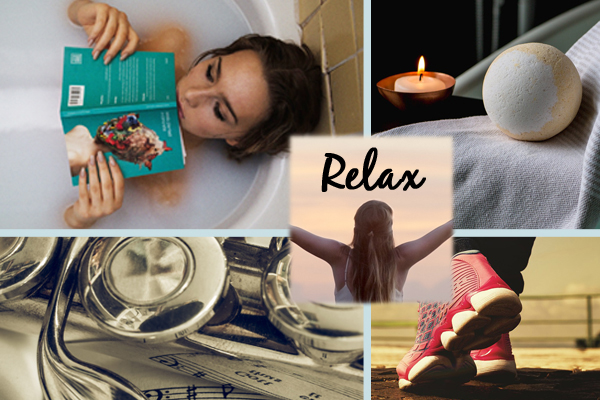
Many people suffer from not being able to get a good nights rest and often wake up still feeling tired. There are many possible reasons for this, we have put together a list of possible causes of restlessness and tips to help you get a better nights sleep. This will help to leave you feeling refreshed and ready for the day ahead.
One of the most important elements of getting a good nights sleep is to get the right amount, the amount of sleep you need is dependant on your age. The National Sleep Foundation recommends 8-10 hours sleep for teenagers and 7-9 hours for adults. If you have too little or even too much sleep it can leave you feeling exhausted and unable to concentrate on daily tasks. It can also have an effect on your mental and emotional state.

Now that you know the amount of sleep the your bodies requires to be fully rested, try to get into a regular sleep routine. Going to bed and waking up at different times every day can upset the rhythm of your body and cause restlessness. If you work shifts or nights try to get into a routine of doing the same relaxing activity before bed, so that you body and mind know when it's time to rest.
Making your bedroom a calm and welcoming area is a positive step to getting a goods nights sleep.
Here are a few elements of your room that may be stopping you from getting the rest you need.
Mess – Having a messy room can lead you to become stressed or irritated, try to make sure everything is put away neatly.
Bright Colours – Decorating your bedroom in vibrant and overpowering colours and patterns can stimulate your mind and make it harder for you to relax. Try to choose calming colours for your bedroom, pale colours are a great way of adding colour to your bedroom without being too much. If you do want a bold colour in your bedroom use it as an accent colour in accessories such as throws, rugs and curtains.
Comfort – Check that your mattress, pillows and duvet are comfortable and supportive. Changing your duvet in winter and summer will bring you greater comfort and help to control your body temperature. Check out our guide on selecting the right quilt which gives advice on choosing the right duvet.
Light – Having thin curtains or not closing the curtains fully allows any light from outside to enter the room, this may interrupt you sleep. Blackout curtains are ideal to block out any light.
Sound – Loud noises can disturb our sleep, if you live in a noisy area try using ear plugs on a night to muffle the noise.
Technology – Using electronic equipment such as TVs, computers, game consoles and phones before bed can stimulate your mind and leave you feeling wide awake. Try avoid using any technology 1-2 hours before you go to bed.

Relaxing your body and mind before bed is a great way to set your body up for a quality nights sleep. Below is a list of ways to help you switch off.
A Bath – Have a warm bath 1-2 hours before bed, the process of your body cooling down can leave you feeling calm and sleepy.
Read A Book – Reading a good book before bed will help transport your mind into a different world and take your mind off any troubles or worries.
Lighting A Candle – Scents can have wonderful relaxing effects on the body and mind. Scents that are known to have relaxing properties are, Lavender, Camomile, Sandalwood and Jasmine.
Music – Listening to certain types of music can have a calming effect on the brain, much like a children's lullaby. Music with slow tempos, sounds of nature such as rain and woodwind based songs all have relaxing qualities.
Food & Drink – Try not to eat big meals 2-3 hours before going to bed, your body will be working on digesting the food rather than winding down ready for rest. If you get peckish before bed try having a light snack to keep the hunger away. Drinking caffeine or alcohol before bed can also stop you from getting the quality sleep you need.
Exercise – According to sleep.org just 10 minutes of aerobic exercise a day can increase your sleep quality. Try walking or cycling in a morning or on an evening to relax your body. Sleep.org says this type of exercise effects people differently at different times, for some walking can give them a boost of energy and others find it makes them sleepy. So make sure you choose the right time to exercise in relation to what effect it has on you.
There are many health conditions that can effect your sleep quality, finding the right solution for your sleep problems is crucial. Sleep deprivation can be serious, disorders like sleep apnea and insomnia can lead to health problems. If you feel your sleep problems are not going away seek medical advice, it is important that your body and mind get the rest they need to keep you fit and healthy.
Stress – Stress is a major cause for lack of sleep, worries and problems seems to fill your mind once you're laid in bed. One way to try and ease the stress is to write any troubles down this will help you feel like you are unloading them.
Anxiety – Suffering from anxiety can mean countless nights of laying in bed worrying, with your mind and pulse racing. Try meditation or breathing exercises before bed to help your body and mind relax.
Snoring – Snoring can wake you or your partner up at night and stop you from getting a full nights sleep. There are many products available to help reduce snoring, the national sleep foundation suggest losing weight, avoiding sleeping pills and laying on your side to help reduce snoring.
Allergies – Some people can be sensitive to dust and particles in the air. Making sure you regularly wash your sheets, hoover and dust your bedroom will help you get a better nights sleep. Having pillows that are non allergenic or anti allergy can help you breath easy at night. This is also recommended for people with asthma. If you suffer from hay fever pollen counts often rise on a night during the summer months, avoid opening then windows and use a fan to keep yourself cool instead.
If lack of sleep if a serious problem for you try to keep a sleep journal containing the times you go to bed and wake up and any elements that may relate to your lack of sleep. It may be that you start to see a pattern emerging.
There are many factors that can effect your sleep, getting to the route of what is causing your lack of sleep is important. we hope our tips help you relax and get more quality sleep. If you have any tips or remedies please share them with us.